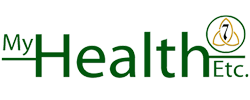Jul 6th 2018
What Does the First FDA Approved CBD Liquid Mean For Medical Marijuana?
For the medical marijuana community, June 25th proved to be a historic day when the first FDA-approved, CBD liquid was announced. Epidiolex, the first marijuana derived cannabidiol available for medical use, will be offered as treatment alternatives for two rare, childhood onset epilepsy diseases---Dravet and Lennox-Gastaut Syndromes. The announcement is momentous, not just because of Epidiolex’s groundbreaking seizure-reducing properties, but for acting as the “foot-in-the-door” drug that will hopefully begin dissolving stigma surrounding CBD and its close relative, marijuana.
So, what exactly is the relationship between CBD oil and seizures? From a clinical standpoint, chemical compounds called cannabinoids affect how ions are released when brain cells communicate, helping regulate any “misfiring” between neurons---a cause of some epileptic seizures. However, from a social standpoint, parents are tired of pumping all kinds of drugs into their children, with each treatment including a mile-long list of negative side effects. Purified cannabidiol oil, the active ingredient in Epidiolex, offers the same seizure-reducing benefits as typical anticonvulsants, but without the lingering issues like nausea, hair loss, headaches, and liver failure.
After conducting three separate, highly-controlled clinical tests, researchers discovered that of the 516 study patients, nearly 40% of them reported their number of seizures cut in half when compared to a placebo-administered control group. Both Dravet and Lennox-Gastaut syndromes are rare, but their effects are dangerous, fatal, and often disrupt other developmental cycles, such as motor skills, cognitive abilities, and intellectual progress. These problems are long-term, and commonly follow patients well into adulthood.
However, now that Epidiolex has reached FDA approved status for explicit medical use, this makes the DEA obliged to change CBD from a Schedule 1 drug classification. This means children who suffer from these epileptic syndromes will now be afforded lives previously thought unrealistic; they can experience careers, marriage, driving a car, or simply sleeping through an entire night. The possibilities, for once in their lives, are now achievable using this organic CBD oil.
By assuming this “breakthrough” mantle, Epidiolex offers something even potentially greater than its treatment results. Since the medical industry now has a CBD-approved product, Epidiolex has the chance of becoming a regulatory pipeline for future cannabidiol drugs. Evidence has always suggested that CBD could be highly effective in treating patients suffering from Alzheimer’s, Autism, and Diabetes, and with the DEA forced to re-classify CBD, the avenues for potential research are clearing up.
Manufacturing CBD for relief is generating tons of buzz, and with Epidiolex’s breakthrough, a cannabidiol-friendly future is looking more and more possible. Potential research would help not only produce more FDA-approved CBD products, but would finally break apart the misunderstandings about this chemical. Ordinary people living under extraordinary conditions could find a reprieve, a solution that would help them take back some of their freedom, and lead lives they can control.

